Introduction
Cross River University of Technology is a Nigerian institution of higher learning that focuses on education, research and innovation in science and technology and applied disciplines. The school is committed to providing students with high-quality education and cultivating professionals with practical ability and innovative thinking in the field of science and technology to promote regional scientific and technological progress and economic development.
Overview
Student size: It has a certain size of student body, including undergraduates and postgraduates. The specific number will vary depending on factors such as enrollment, but the school provides students with a diverse academic exchange environment to meet the learning needs of different levels and majors.
Discipline: The disciplines cover engineering technology, natural sciences, computer science, agricultural technology, environmental science and other fields. The courses offered include mechanical engineering, electrical engineering, civil engineering, computer engineering, chemistry, biology, agricultural engineering, environmental engineering and many other majors, providing students with a wide range of choices.
History and establishment time
The history of the school can be traced back to the past few decades, and it has gradually developed with Nigeria's emphasis on science and technology education. It was established in [specific year] and is an important institution established by the local government and educational institutions to improve the level of science and technology education.
School Strength
Teaching Staff: We have a team of teachers with professional knowledge and practical experience. Most of the teachers come from related science and technology fields. They not only have certain attainments in academic research, but also can integrate practical industry experience into the teaching process. Some teachers also actively participate in academic exchanges and scientific research cooperation at home and abroad, bringing the latest scientific and technological knowledge and teaching methods to the school.
Scientific Research Achievements: We have carried out a series of scientific research activities in engineering technology innovation, agricultural technology improvement, environmental science research, etc. For example, in the field of engineering, we study and improve local infrastructure construction technology; in agriculture, we explore efficient planting and breeding technologies suitable for the local environment; in the field of environmental science, we study effective strategies to deal with local environmental problems. The school's scientific research achievements have played a positive role in promoting local scientific and technological progress and sustainable development.
International Cooperation: We actively establish cooperative relations with international science and technology colleges and research institutions. We strengthen international scientific and technological exchanges and cooperation through student exchange programs, teacher visits, joint scientific research, etc. This helps the school introduce advanced technology and educational concepts, and also enhances the school's reputation in the field of international science and technology education.
Nature of the institution
This is a public university funded and managed by the Cross River State Government of Nigeria. As a public university, it has important responsibilities in serving the needs of science and technology education in the region and promoting local economic development.
Educational philosophy
The core goal is to cultivate scientific and technological talents with innovative spirit and practical ability. Emphasis is placed on the combination of theory and practice, focusing on students' ability to solve practical scientific and technological problems through experiments, internships, project practices and other links on the basis of mastering solid theoretical knowledge. At the same time, students are encouraged to actively participate in scientific and technological innovation activities, cultivate innovative thinking and teamwork spirit, so as to adapt to the needs of the era of rapid development of science and technology.
Key laboratories and disciplines
Key disciplines: Engineering disciplines (such as mechanical engineering, electrical engineering, civil engineering) and agricultural technology disciplines are the school's advantageous disciplines. Engineering disciplines have strong teaching and scientific research strength in infrastructure construction and energy utilization; agricultural technology disciplines have outstanding performance in agricultural modernization, agricultural product processing and other fields.
Key laboratories: There are engineering technology laboratories, such as mechanical engineering laboratories equipped with advanced machine tools, CNC equipment, etc., for mechanical manufacturing process experiments and mechanical performance testing; electrical engineering laboratories have various electrical testing instruments, power system simulation equipment, etc., to provide support for electrical automation and power engineering teaching and scientific research. In terms of agricultural technology, there are agricultural experimental bases and agricultural engineering laboratories for conducting crop planting experiments, agricultural machinery operation and improvement experiments, etc.
Faculties and Colleges
The school has an engineering college (including the Department of Mechanical Engineering, the Department of Electrical Engineering, the Department of Civil Engineering, etc.), a science college (the Department of Chemistry, the Department of Biology, etc.), an agricultural technology college, a computer science and information technology college, and an environmental science college. Each college is further divided into multiple professional directions to provide students with systematic subject education.
Ranking
In the domestic university rankings in Nigeria, it occupies a certain position among science and technology colleges. Although it may not be prominent in the international rankings for the time being, it plays an important role in the field of science and technology education in the region and the country, and with the continuous development of the school, its ranking is expected to gradually improve.
Costs
Tuition fees: For Nigerian students, tuition fees are relatively low, and the state government will provide certain funding policies. For international students, tuition fees vary according to different majors and degree levels, but overall they are reasonable compared with other similar institutions.
Living expenses: The cost of living in the area where the school is located varies depending on the local economic level and price conditions. The living expenses of students mainly include accommodation, food, transportation, etc. The cost of school dormitories varies according to different accommodation conditions. The cost of food and transportation is relatively reasonable in the local environment.
Campus environment
Architectural style: The architectural style of the campus combines modern scientific and technological elements with local characteristics. The architectural design of teaching buildings, laboratories, etc. focuses on functionality and practicality, and also reflects the school's scientific and technological atmosphere. For example, the exterior of the building may adopt a simple modern style, and the internal space layout is reasonable to facilitate the development of teaching and scientific research activities.
Campus facilities: It has complete teaching facilities, including modern classrooms, advanced laboratories (such as the various laboratories mentioned above), professional libraries (collections cover engineering technology, natural sciences, computer science and other fields), computer centers, etc. Living facilities include student dormitories (providing different levels of accommodation conditions), canteens, sports stadiums (such as basketball courts, football fields, etc., for students' extracurricular sports activities), etc., to meet students' learning and living needs.
Natural landscape: There are certain green areas on campus, planted with trees and flowers, which add a natural atmosphere to the campus. At the same time, some practice bases related to agricultural technology (such as farmland, orchards, etc.) also constitute the unique landscape of the campus, allowing students to feel the beauty of the natural environment while learning scientific and technological knowledge.
-
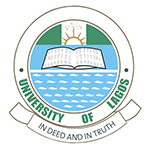
University of Lagos
-
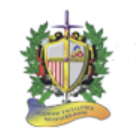
Benson Idahosa University
-
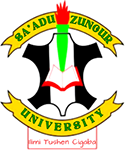
Bauchi State University
-
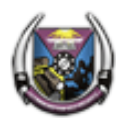
Federal University of Technology, Akure
-
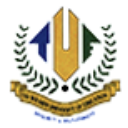
Tai Solarin University of Education
-
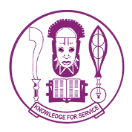
University of Benin
-

Bayero University Kano
-

Ahmadu Bello University
-
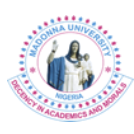
Madonna University
-
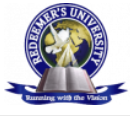
Redeemer's University
-

Mesoamerican University
-

Istmo University
-

Mariano Galvez University of Guatemala
-

Regional University of Guatemala
-

Galileo University
-

Francisco Marroquín University
-

Rafael Landívar University
-

University of the Valley of Guatemala
-

University of San Carlos of Guatemala
-

Technological Institute of Tlaxcala Plateau
-

Golfo University
-

Technological University of South Sonora
-

Technological University of Huejotzingo
-

Tizimín Institute of Technology
-

Chilpancingo Institute of Technology

